The City of Athens Library, one of the most important and historic libraries of the country, reopened its doors to the citizens on 11 February 2025. The Library has been radically modernized, while some 25,000 books of all categories are now freely accessible to the public.
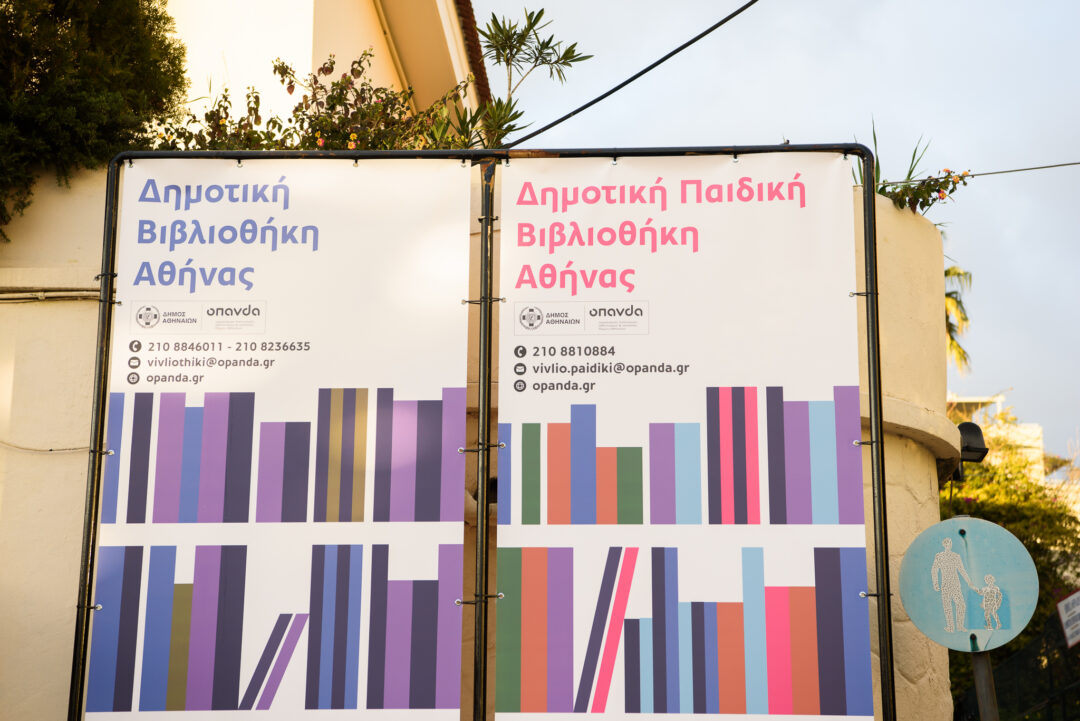
On this occasion, Reading Greece* spoke to Οurania Melianou, Head of the Culture Directorate of the City of Athens Culture, Sports and Youth Organization (O.P.A.N.D.A.), about the Library’s history, the great wealth of books, rare collections and archives that are housed in the Library, as well as the main challenges it is faced with, and the prospects ahead.
The City of Athens Library is one of the country’s most important and historical libraries. Tell as a few things about its history.
The City of Athens Library is one of the oldest and most emblematic institutions of cultural and intellectual development in Greece, with a history of almost two centuries. It was founded in 1835, at a time when Greece was taking its first steps as an independent state, and Athens had just been designated as its capital. The establishment of the library was not just an administrative act; it was a statement of intent: from the very beginning, the new Greek state placed culture and knowledge at the core of its identity.
It was first housed in the Town Hall of Athens, while during the 20th century it was moved several times, following the development of the city. During its century-long course, it compiled a notable core of collections through acquisitions – most notably that of the George Vlachos collection – and donations, and became a reference point for people of letters, art and science. It was one of the few public spaces accessible for reading and study, even before the concept of a public library was institutionally established.
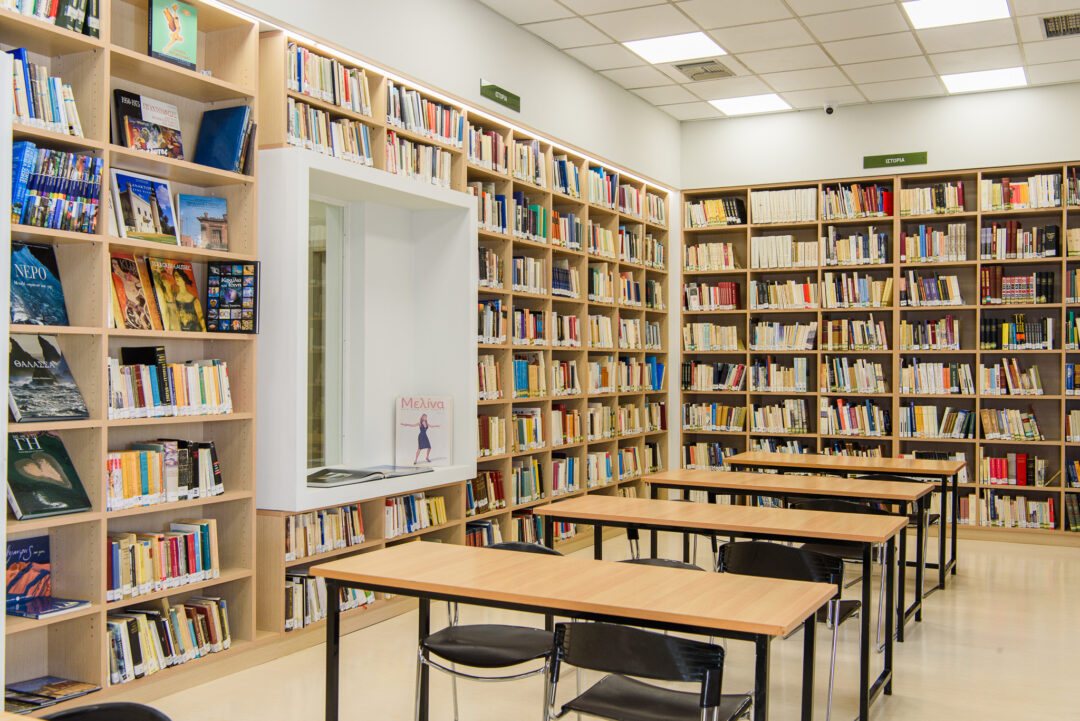
From its first steps, the Library attracted the interest of important personalities of the time. Among them, the then Mayor of Athens, Anargyros Petrakis, who actively supported its creation, as well as Konstantinos “Agathofron” Nikolopoulos, whose donation remains a lasting symbol of the importance of donations in enhancing cultural wealth and the dissemination of knowledge in society.
During the 19th and early 20th century, the Library was a reference point for many writers, researchers and students. Its premises hosted generations of scholars, while rare documents from its collections were used in scientific papers and historical studies. It has also been associated with the intellectual life of Athens through collaborations with distinguished institutions such as the National and Kapodistrian University of Athens and the Academy of Athens.
Its collection includes valuable palaeotypes, publications of the 18th and 19th centuries, manuscripts, newspapers from the period of Otto, as well as archives documenting the administrative, social and intellectual life of the city. Among the most important documents are a rare edition of the work of Adamantios Korais, as well as first editions of Greek writers of the 20th century, such as Kostas Varnalis and Grigorios Xenopoulos. Its collection numbers over 75,000 book titles, rare and old documents, magazines, newspapers and archival material that testify to the evolution of Greek society and thought. Among them are rare publications of the 19th century, old prints and a valuable collection of donations from prominent Greek intellectuals.
Beyond the preservation and dissemination of knowledge, however, the City of Athens Library is constantly evolving into an open cultural hub, with a multitude of activities that promote literacy, creativity and active cultural participation. From book presentations, creative writing workshops and reading clubs, to collaborations with schools, cultural institutions and international organizations, the library functions as a living organization that connects the past with the present, as well as the local with the international.
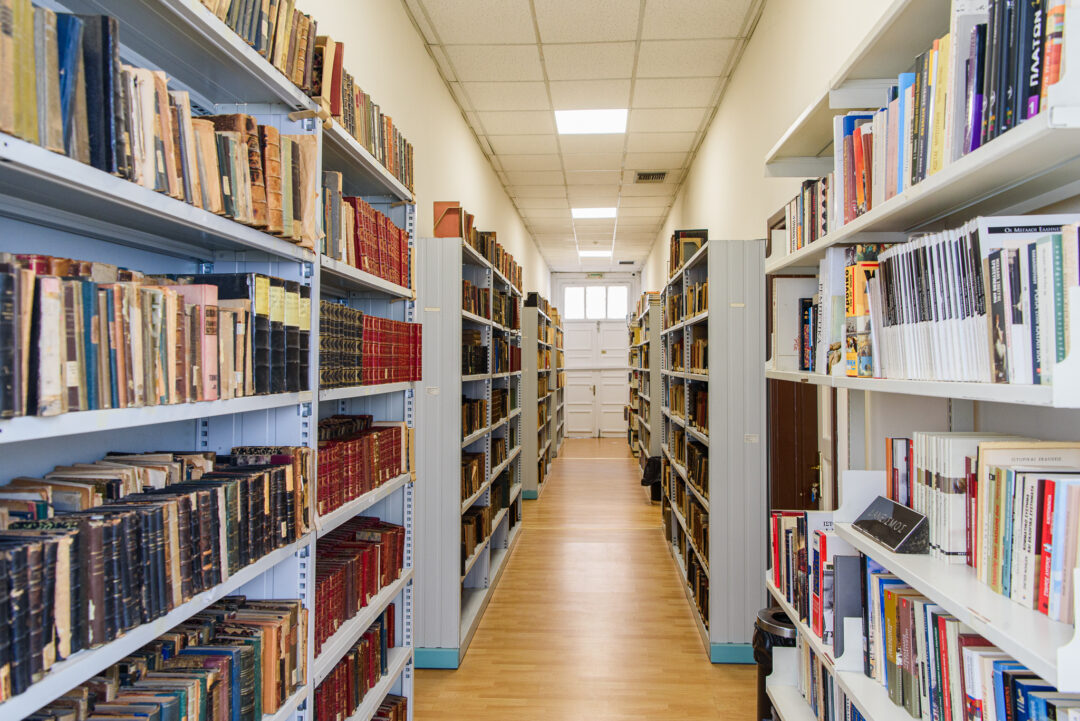
Its mission remains the same: to ensure free access to knowledge, to support the intellectual development of all citizens and to actively contribute to the promotion of Greek literature and cultural heritage. Its importance is not limited to the supply of books, but extends to the shaping of the Athenian identity, focusing on equal access to knowledge.
The Library has been and continues to be a living organisation, which keeps up with social and cultural changes; it strives to respond to contemporary needs and to preserve its role as a custodian of collective memory. Its renewal and modernisation constitute the natural evolution of a history that is still being written.
In 11 February 2025, the City of Athens Library re-opened, entering a new era. What does this reopening mean?
The reopening of the City of Athens Library, following extensive and substantial renovation, constitutes a milestone not only for the Library itself, but also for the cultural map of the capital as a whole. It is a relaunch with multiple symbolism, as the Library is dynamically repositioned at the heart of the city’s cultural life, with a clear vision and social orientation.
Its image reflects the philosophy that the Library is not only a place where the printed cultural heritage is preserved, but also an open, participatory and living organisation that addresses every citizen. It is a place of meeting, learning and creative fermentation, which encourages dialogue, critical thinking and love for reading.
The new infrastructure creates the conditions for the realization of a rich program of events and actions; lectures, seminars, reading clubs, creative writing workshops and cultural collaborations with the city’s institutions offer new impetus to its content and operation. Special attention is paid to enhancing accessibility for different identities and social groups, especially those with a limited access to the world of books.
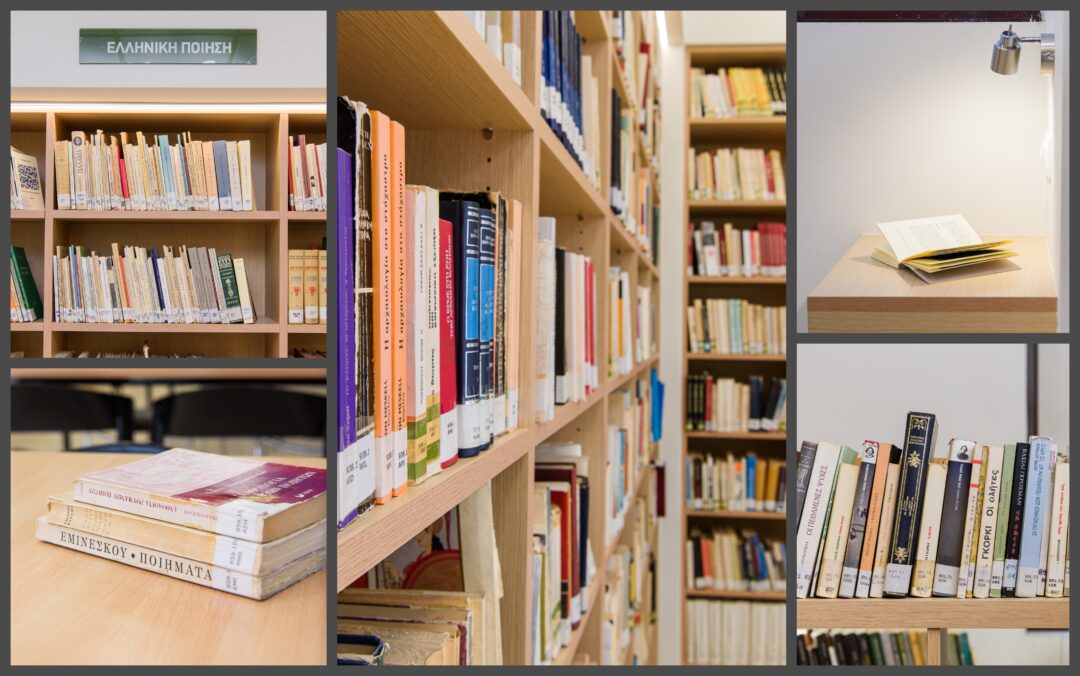
The Library plays a social and democratic role. It constitutes a place of inclusion, empowerment and participation. It embodies the idea that culture is not a luxury but a basic right and that books can become a vehicle for self-awareness and a common place of coexistence.
Its re-opening signifies the Library’s active presence, with roots deeply anchored in the past and with an eye on the future. It confirms its historic mission as the custodian of Greek Letters, but also as a modern cultural hub that serves the city and its people with consistency and sensitivity. At a time when the concept of public space is often tested or limited, the reopening of the Library brings to the fore the importance of open, collective places of learning and exchange.
The Library operates as an urban community hub, a place where citizens can not only seek knowledge, but also meet, express themselves and create. With its distinctive presence, it reinforces the social fabric of the city, promoting participation, coexistence and inclusion. Within the Library, the notions of dialogue and cooperation is put into practice, making it not just an institution, but an everyday place to meet and to make sense of the experience of belonging to a community.
In addition to the huge volume of books – 75,000 titles – the Library houses a significant number of rare books. What are the categories of books the visitor-reader can have access to?
The City of Athens Library houses a huge number of books, as well as a variety of publications that cover numerous categories of knowledge and culture. However, beyond the volume of the collection, what makes it truly special is the wealth of rare books and archival collections it hosts. The potential to access such rich and specialised material makes the Library a unique destination for visitors and researchers alike.
The first area worth mentioning is literature, which constitutes the core of the Library. The collection comprises works by important Greek and foreign authors, while there are also rare editions from the 19th and 20th centuries. For instance, first editions of the works of Alexandros Papadiamantis, C.P. Cavafy and George Seferis, as well as other classic Greek prose writers and poets. The importance of these first editions is undeniable, as they highlight the literary and cultural development of modern Greek society.
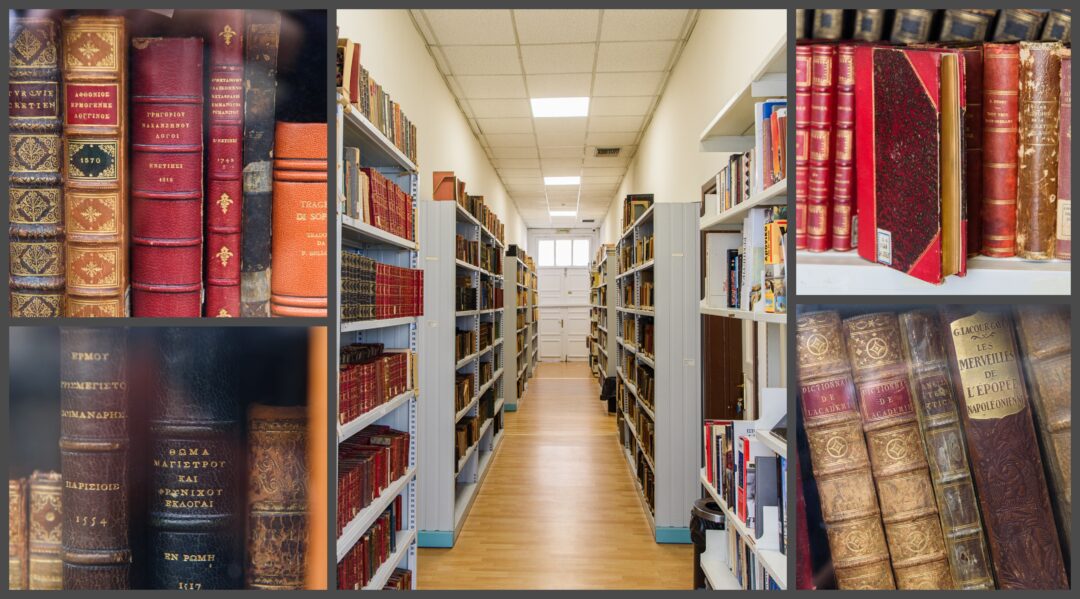
Our archive comprises about 75.000 book titles. It is constantly enriched with donations, purchases, renewed and growing. The oldest book we have in our collection is the work of Gregory of Nazianzus of 1516, published in Venice under the title “Orations”. We also have Thomas Magister’s work “Phrynichus Ecloga” of 1517 which was also published in Venice. There are 30 books from the 19th century, 60 books published up to 1930, 60 books up to 1960 and about 1000 books up to the present day.
The idea comes to complement the already existing archive of Athenian Newspapers, Athenian Calendars, as well as the collection of old Postcards and Theatrical Programmes, which constitute an exceptional collection.
We have an archive of Athenian calendars. The oldest are the Athenian Calendar of Irenaeus Aisopos of 1869, and the Attic Calendar of Dimitrios Koromilas of 1874. The collection contains 65,000 titles covering all fields of knowledge and the catalogue is available online. Most of the titles relate to literature and history, but there is also a significant number of titles in the fields of sociology, philosophy, psychology, arts, etc.
The Library also has a wealth of material related to social and political sciences. There are collections of books on political and social theories, the history of democracy and the Greek Revolution, which serve research needs on the study of social changes in Greece and Europe. Of particular interest is the collection on Athens, which covers Athenian, interdisciplinary and cross-disciplinary, issues. Through this collection, the visitor can follow the social, political and cultural evolution of Greece from the 19th century to the modern era.
All the books, publications and archival material of City of Athens Library constitute a unique heritage that combines knowledge with history, arts with sciences, while it highlights the importance of Greek and international thought and creation to a wide audience. The collection is constantly enriched through purchases and donations, while material relating to the history of the city’s institutions, organizations and associations is also being assembled diligently.
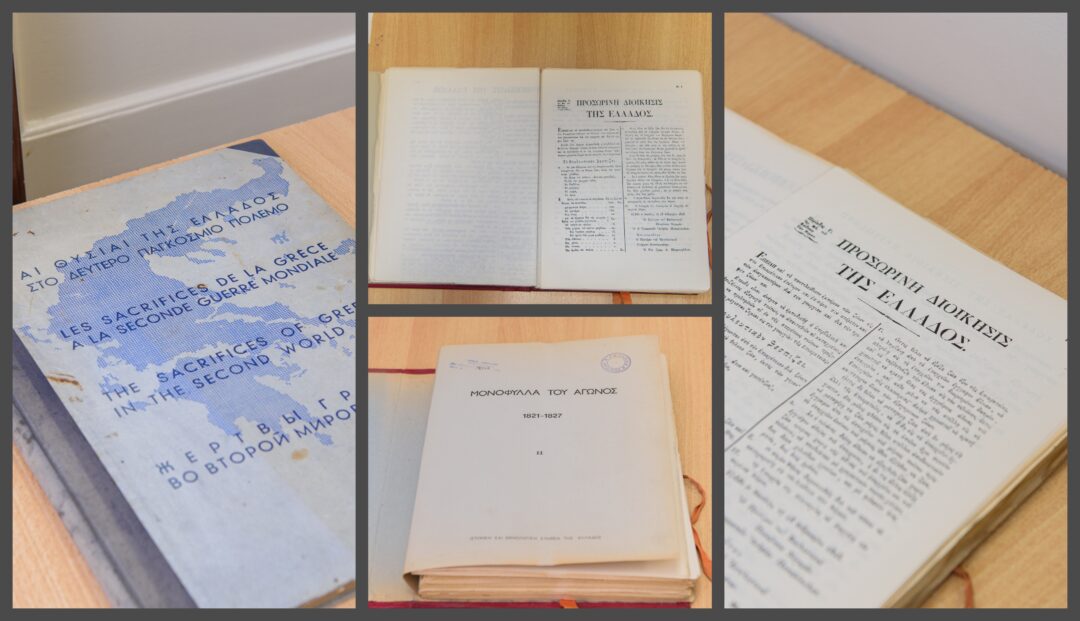
At the same time, the Library houses a valuable archive of newspapers and periodicals. Tell us a few things about the richness of this archival material.
The archival material housed in the City of Athens Library is a real treasure of historical documentation. Its collections include thousands of volumes of newspapers and magazines, covering more than one and a half centuries of publishing activity, from the mid-19th century to the end of the 20th century. These are valuable documents of the Greek press, which reflect the political, social and cultural changes of the country through the daily events and opinions of the time.
The oldest newspaper is “The Students’ Newspaper” of 1852, as well as “Chronos”, “Kairoi”, “Ora” etc. The journal archive comprises more than 1000 titles. The oldest periodicals in the library are “The Euterpe” of the year 1849, “Pandora” of the year 1850, “I Nea” of the year 1927. The Library also hosts an archive of Government Gazettes from the first Government Gazette in 1833 to 2006, when the archive was digitalized.
The archive includes both major newspapers and lesser-known periodicals of various types, literary publications and scientific journals. Among them are newspapers that record the life of Athens at the beginning of the 20th century, archives of the Occupation period, as well as rare periodicals that reflect the intellectual and artistic ferment of the 19th and 20th centuries.
The archive of the City of Athens Library provides visitors with valuable resources for the study of Greek history, politics and society. It allows for an in-depth study of important historical events, the study of literary and cultural developments, while it supports research projects and academic work. We wish not only to promote the press as a primary source of historical knowledge, but also to activate public history in contemporary and participatory terms.
Which are the main challenges that the Municipal Library of Athens faces today?
As is the case with many cultural institutions in Greece and internationally, the City of Athens Library is called upon to face a set of complex and multi-level challenges. First and foremost, the challenge of sustainability; ensuring stable and sufficient resources, both for the maintenance of the infrastructure and for the uninterrupted operation of services, is a constant challenge. Culture is often called upon to operate with limited resources, and libraries are no exception.
A second major challenge concerns digital transformation. Modern readers have completely different expectations and habits when it comes to accessing knowledge. A library has to integrate e-book technologies, while maintaining its character as a natural meeting point and study area.
It is important to keep our cultural heritage alive through actions that are not only aimed at specialists, but affect the everyday lives of citizens. The challenge is to make the Library a place that not only preserves but also generates culture.
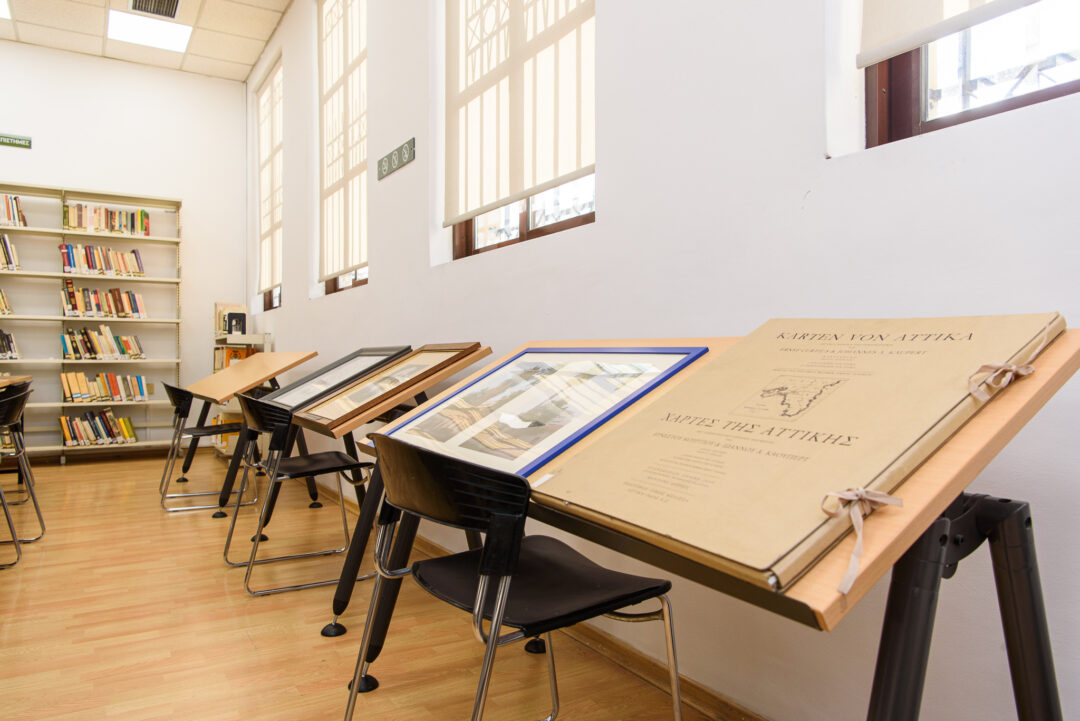
Which are the prospects ahead?
The future prospects of the City of Athens Library are inextricably linked to the role we want the institution of the public library to play in the 21st century. We envision an outward-looking, dynamic library with a strong presence both in the local community and at an international level. We aspire to foster inclusiveness, empower citizens, offer opportunities for lifelong learning and creative expression.
Our strategic goal is to develop partnerships with educational and cultural institutions in Greece and abroad, to participate in international library networks and to contribute to the promotion of Greek literature and culture worldwide.
At the same time, we actively pursue the completion of our digital transformation, aiming to create a modern digital library accessible from everywhere, and to integrate innovative services such as virtual tours, artificial intelligence in material search, and the development of educational applications for schools. The library of the future will not just be a repository of books, but a hub of social and cultural development, a place where ideas are exchanged, generations meet and knowledge is experienced. Athens deserves such a library – and we are determined to build it together with its citizens.
*Interview by Athina Rossoglou
TAGS: LITERATURE & BOOKS | READING GREECE














